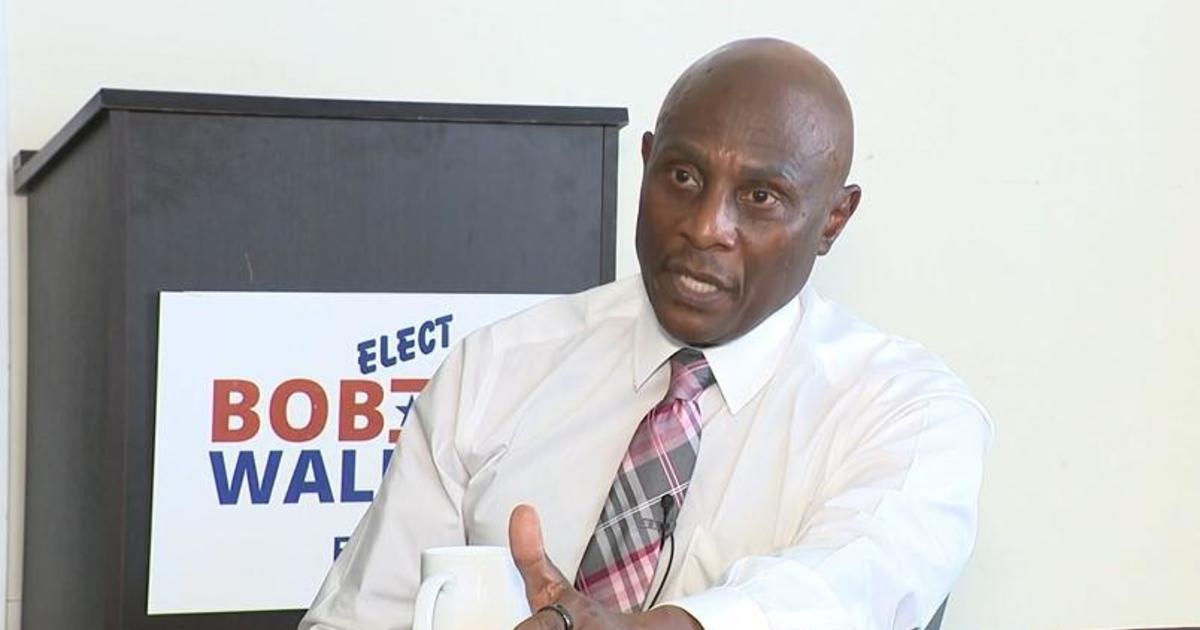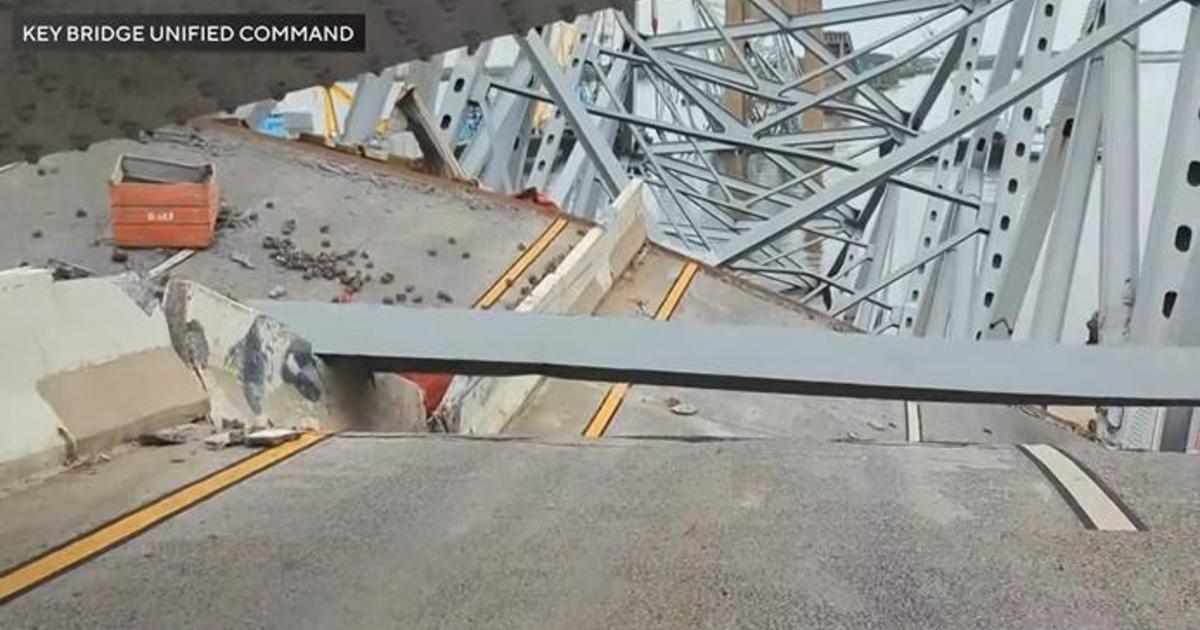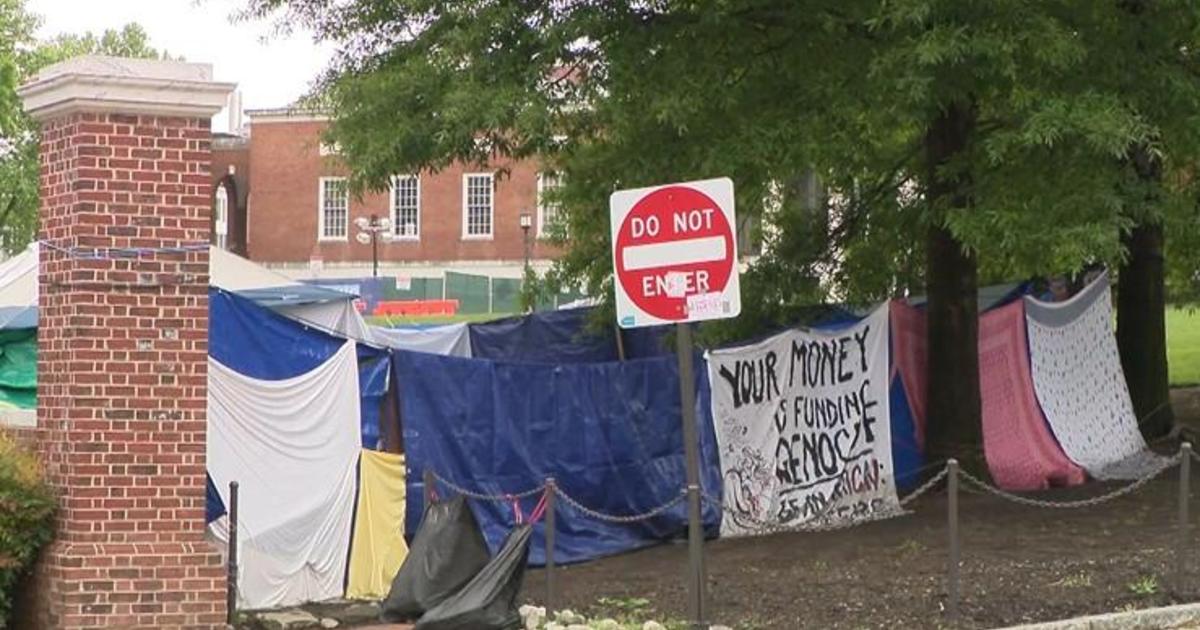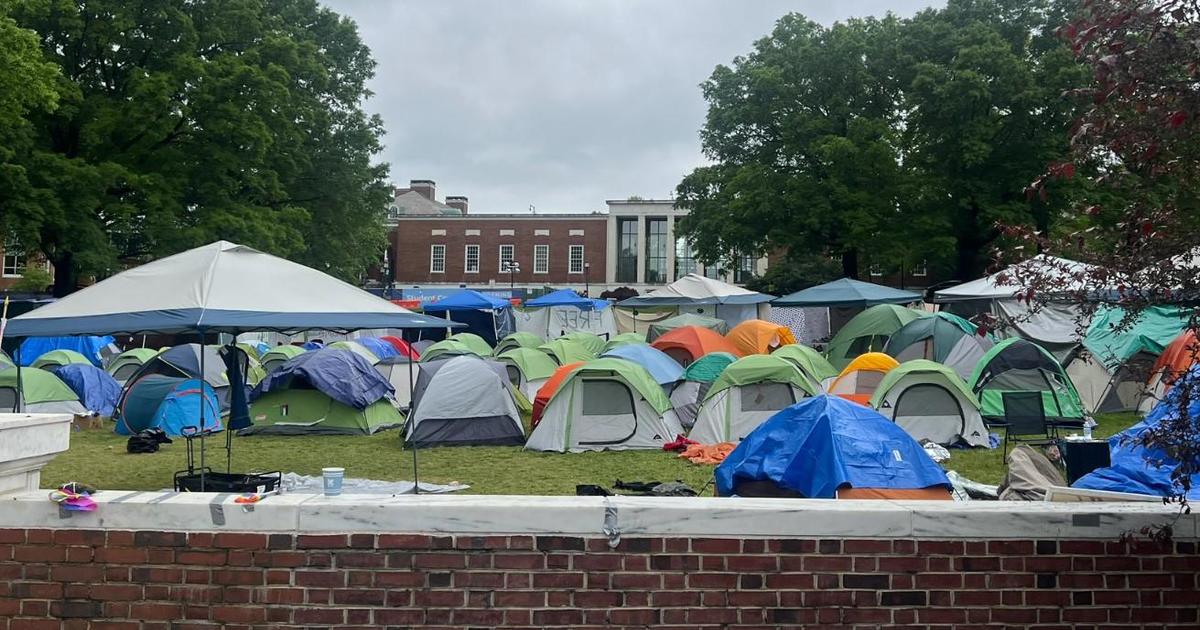New Jewish Museum team looks beyond history for inspiration
BALTIMORE (AP) — Sol Davis wants to get rid of the gift shop. The store used to sell everything from magnets to menorahs, but the executive director of the Jewish Museum of Maryland is looking to install an audio and video studio instead.
"I want to use this place, this platform, as a space for imagining the Jewish future," Davis said.
Up till now, the museum has largely focused on history but is looking to move toward more contemporary models, especially in the art sphere. "Being a history museum is more of a choice, not really a necessity," Davis said.
But the history of the institution is rich. Born from the Jewish Historical Society of Maryland, the museum opened its first exhibition in the basement of Lloyd Street in 1966 and now boasts an expansive campus. It's flanked on either end by "two of the oldest synagogue buildings still standing in the country," according to "Synagogue Stories," a museum documentary. The Lloyd Street synagogue, finished in 1845, was restored with help from the Maryland Jewish Historical Society and opened to visitors in 1964, and B'nai Israel, which has owned the neighboring synagogue since 1895, is still active and open for services.
Being a culturally specific museum means still honoring that past, yet creating space for conversations, exhibitions and collections that sift through history to cobble together something new. The curatorial shift is clear in recent exhibitions like "A Fence Around the Torah."
Curated by Liora Ostroff along with a panel of five others, the exhibit's 2D visual pieces, as well as multimedia and site-specific works, tackled what safety means within the Jewish context, examining the ways that boundaries can encourage safety yet also promote exclusion. The exhibit spurred episodes of "Disloyal," the podcast the museum produces, which talks about "the political, cultural, and spiritual trends that are shaping the world today through a distinctively Jewish lens," according to its website.
Ostroff was the first curator in residence for the museum, which does not have a full-time curator position. For Leora Fridman, curator of the upcoming exhibition "Material/Inheritance," it was important to put together "risk-taking Jewish contemporary art" — art that typically wouldn't be shown in a Jewish space.
Running until June 11, "Material/Inheritance" will have works from 30 New Jewish Culture fellows whose works speak to queerness, identity and the complicated feelings about cultural and racial identity. Performances from artists whose work doesn't hang on walls, such as musical acts and lectures, will play an integral role in the exhibit's opening and closing. "I want people to know we are reinventing "what these kind of events look like, Fridman said.
The collaboration between the museum and the New Jewish Culture Fellowship has been growing since Davis assumed his position in January 2021. The partnership has helped attract new audiences — a necessity for the institution's growth.
Communications director Mark Gunnery said the museum has been gauging part of that visitorship through digital analytics, as all of their new exhibits are available to see online. They have also seen a 46% increase in Instagram followers and 600% increase in YouTube views over the last year and a half — "good steps forward in engaging as a truly 21st century museum," Gunnery said.
It's a "perpetual concern for Jewish people that younger Jewish people become engaged in Jewish life," Davis said. The curator in residence program has brought on co-conspirators in his fight for an intergenerational audience.
The museum has seen other changes on its staff as well. Archivist Maggie Hoffman was hired shortly before Davis, and since 2021, the team has also welcomed Gunnery; Zoë Reznick Gewanter, a director of public programs; and Aimee Pohl, a reference assistant.
The Lloyd Street Synagogue is going through changes, too. It currently houses an exhibit that tells the story of its history, but that will soon be rehomed since the team reinterpreted the show into the "Synagogue Stories" documentary. The synagogue isn't shutting down completely, though. Davis hopes that it can host people and events, possibly in the synagogue's beth midrash, or place for study. "As long as its structurally able, I would like to activate it," he said.
The work of the Jewish Museum of Maryland expands beyond the Lloyd Street corridor. Hoffman had never worked in a Jewish museum before joining the staff in 2020. When they began their genealogical research years ago, they discovered their great-great-granduncle's first job in the United States was as a rabbi at B'nai Israel when it was located at Exeter and Fayette.
"Learning about my ancestors has been a privilege, and I'm honored to hold a position where I can help researchers draw family connections of their own," Hoffman said.
Those archives also offer context to present issues, and the museum's collection of materials and records are preserved so Jewish history in Maryland is not forgotten. It's an imperative part of imagining the future.
Davis said he knows there is a road ahead that's paved with difficult conversations and threats to the community as antisemitic hate crimes have risen; 2021 saw the highest number of antisemitic incidents on record in the country, according to the Anti-Defamation League.
But Davis sees the existence of the museum as one of the most simple ways to combat hatred: "Creating a space for Jewish culture to thrive is a response to antisemitism."



